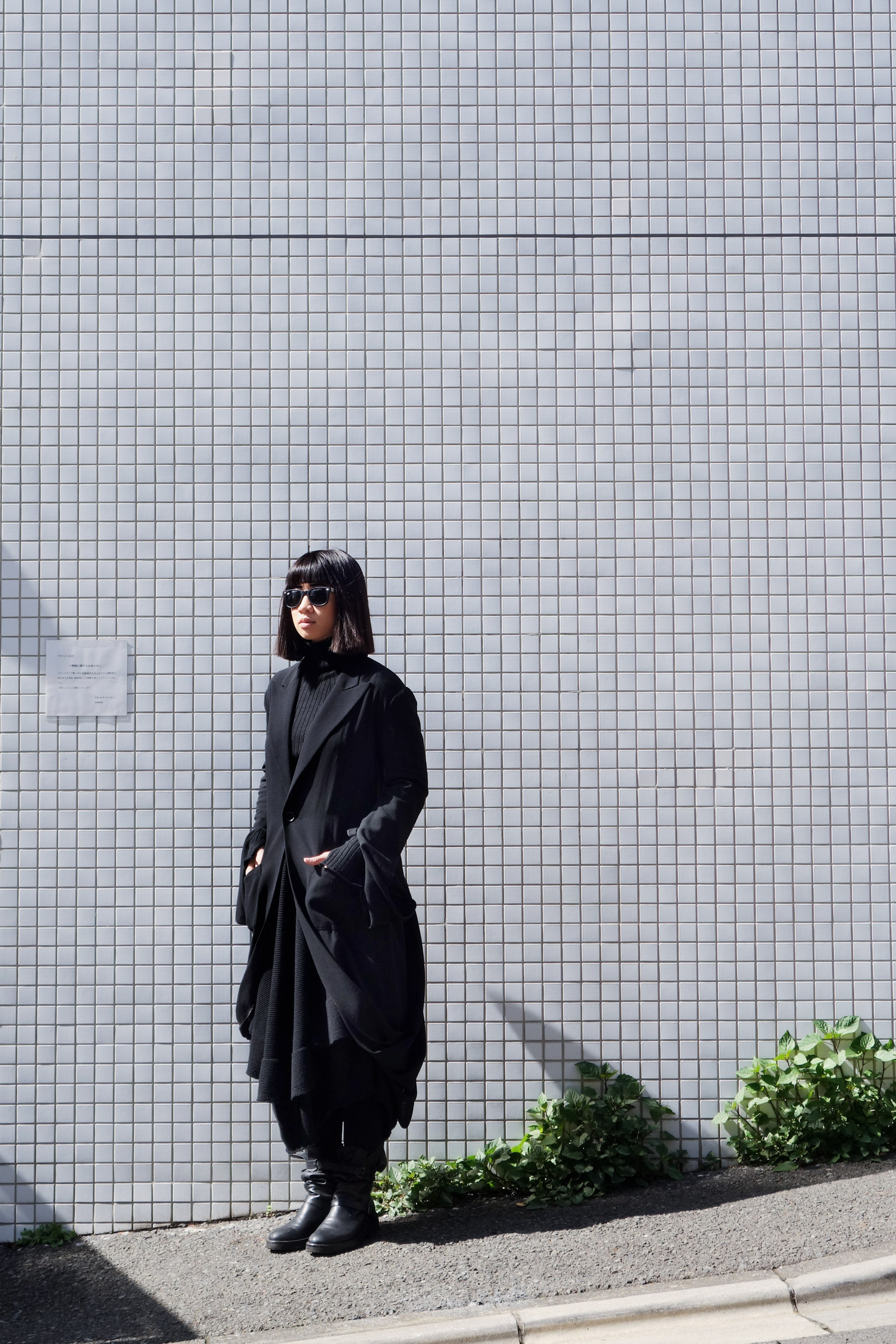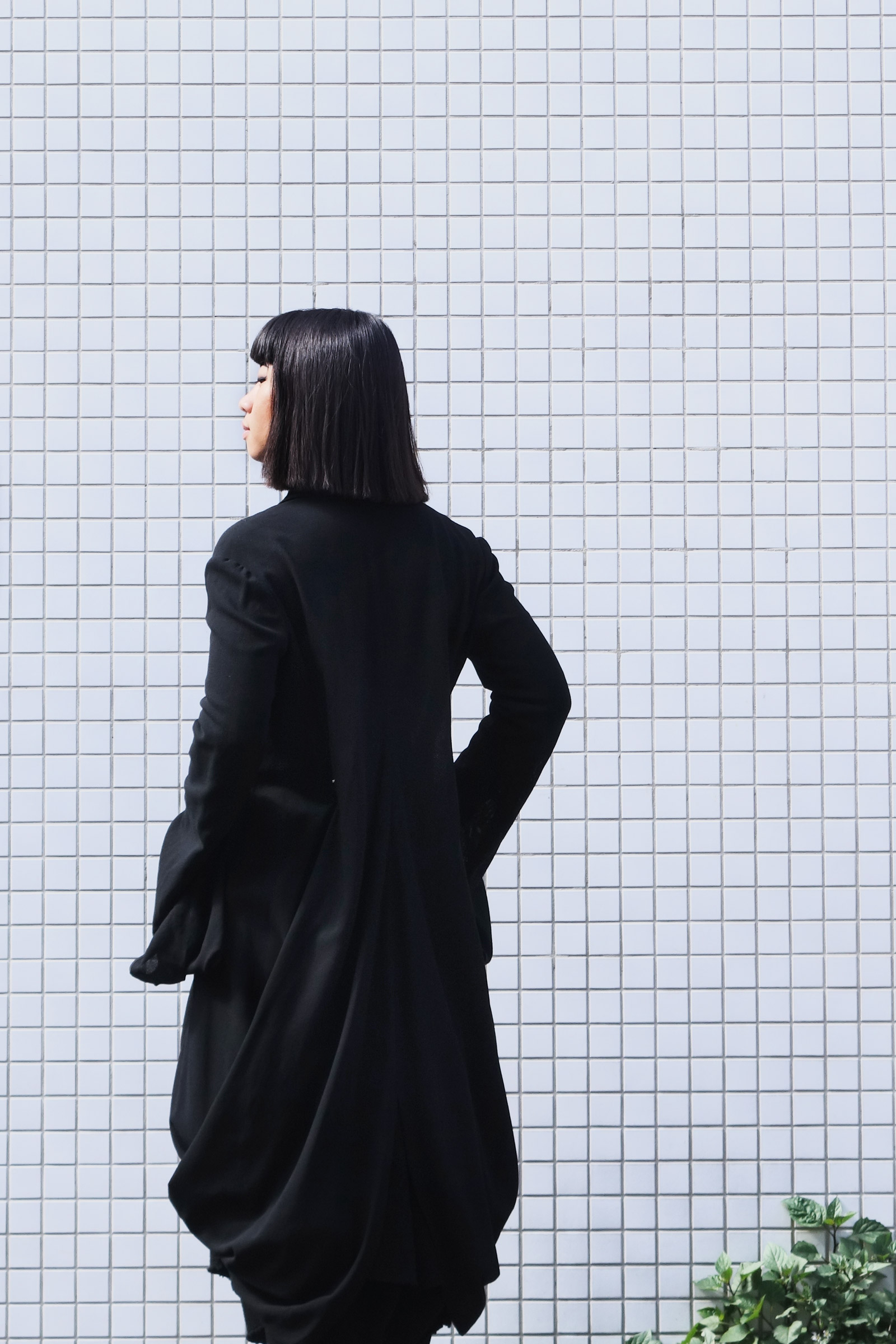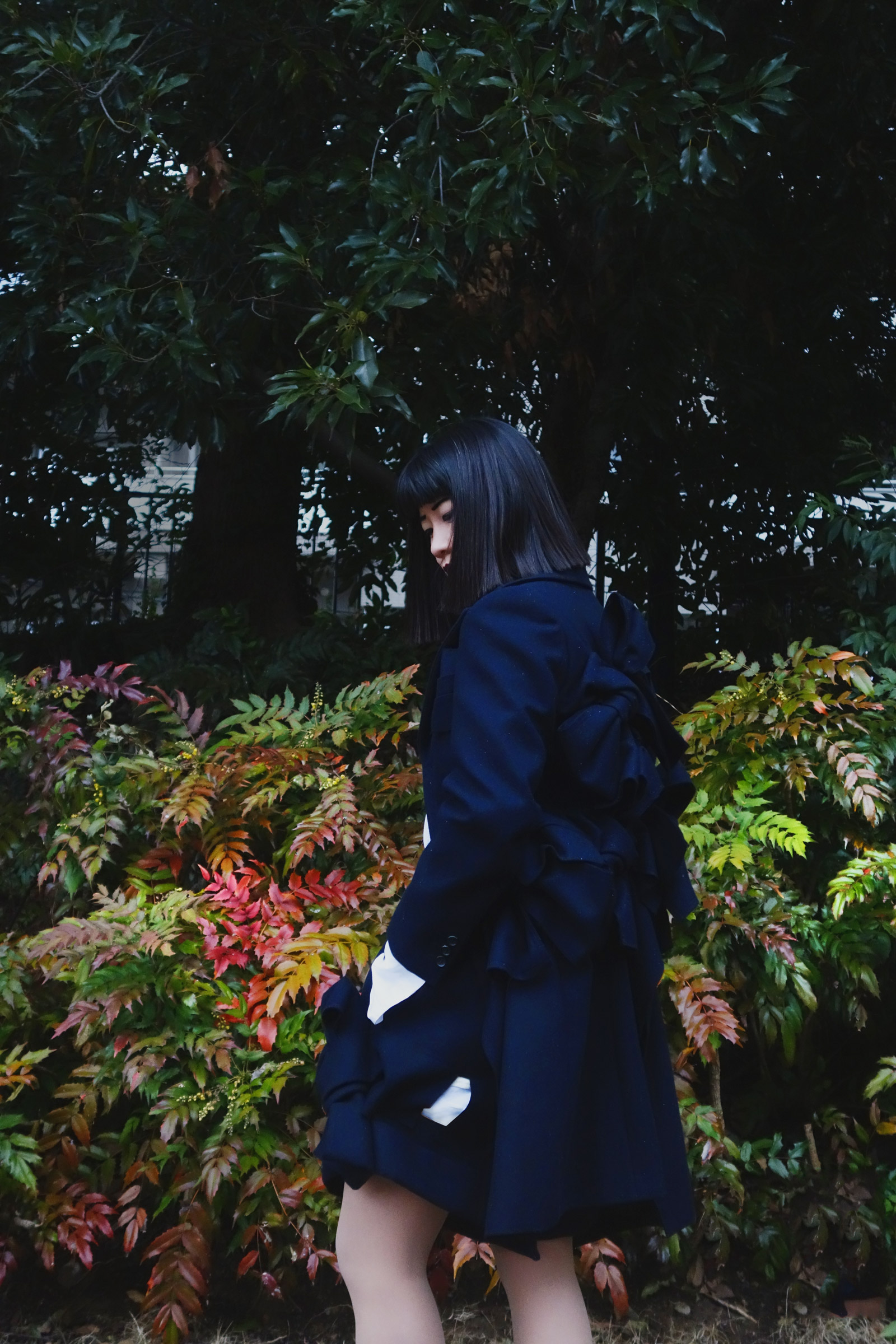There’s the old cliché attributed to Yohji Yamamoto of black representing the desire to be left alone – ‘I don’t bother you, don’t bother me.’
I can’t help but wonder, do we really want to be alone? I am one who enjoys solitude, but it took me some months after a series of traumatic life experience to be comfortable in it. Many people I’ve talked to are deeply afraid of eating alone, sleeping alone, traveling alone, being alone. In their 20s, men and women need to be physically surrounded by friends, families and/or sexual partner(s). Past that age, the gnawing feeling that one must find a life partner begins to suffocate our lives. Biology dictates that we must pass on our genes, hence the need for a significant other.

We are afraid of being alone, not because being alone is inherently bad. It’s that society equates being alone with loneliness, that both are inseparable when in fact they are – despite their correlation – mutually exclusive. We are constantly bombarded by imageries of people having fun surrounded by other people, that if you do things on your own, you are missing out on the best things in life. We scroll through Facebook and Instagram feeds being envious of other people’s romantic and social lives, without recognising that they too are not immune to isolation. We get the feeling that doing things on your own make you a loser.
We forget that there are people who are desperately lonely despite being in a relationship or surrounded by friends. One simply needs to read Woolf’s Mrs. Dalloway or Murakami’s South of The Border, West of The Sun to identify the various types of loneliness experienced within marriages and social circles. We grow up thinking that loneliness will go away if we have a partner, a loving family, or robust social circle – which is incredibly inaccurate in reality. The feeling of loneliness doesn’t stem from external circumstances, it is the perceived feeling that the people we care about doesn’t care as much about us, or worse, that noone cares about us at all. Loneliness is like a stomach pain. Everyone will eventually get it and more often than not they do pass. But unlike stomach pains, humans aren’t taught to work through it. We know to avoid bad food or get the right pills for pains, but we don’t learn to recognise incoming loneliness and walk around it. If despite our best efforts it still hits us, we don’t learn to be comfortable in its presence, nor take the necessary steps to deal with it. It is no wonder that chronic loneliness is on the rise.
That is not to say that constantly wallowing in solitude is the solution. Humans are wired to form social connections with people. But the drive to avoid being alone at all costs becomes a dysfunctional reason to form terrible friendships and relationships. We form superficial connections, especially sexual ones, in a desperate attempt to have someone next to us. We don’t take the time to judge what is good or bad for us because we think that loneliness is just around the corner if we don’t say yes to another crazy night out or work on a dysfunctional relationship, or leave, if it has to come to that. The fear of being alone holds us back from making decisions that will be more beneficial in the long run, and thus we descend into a downward spiral, often into a place of depression and desperation.
Literature has been one of the most powerful ways to understand and overcome loneliness. It allows us to form a cognitive and emotional connections with people throughout history and places, knowing that our personal struggles are not unique. At 6 AM everyday with a cup of coffee – whose aroma Murakami aptly described as the separation of day and night – when the world is still and the mind uncluttered, I dive into the agonies of life cloaked behind fiction. Words that spoke through time; words that we can relate to.
On the streets, we put up a façade of being aloof as a self-defence mechanism against the dangers of the world. And it works. But the danger is that we become oblivious to our inner fragile self that hasn’t grasped the ability to enjoy our own company. Knowing how to be alone is a valuable tool that will help us form healthy relationships. And most importantly, it is the best defence against loneliness.





